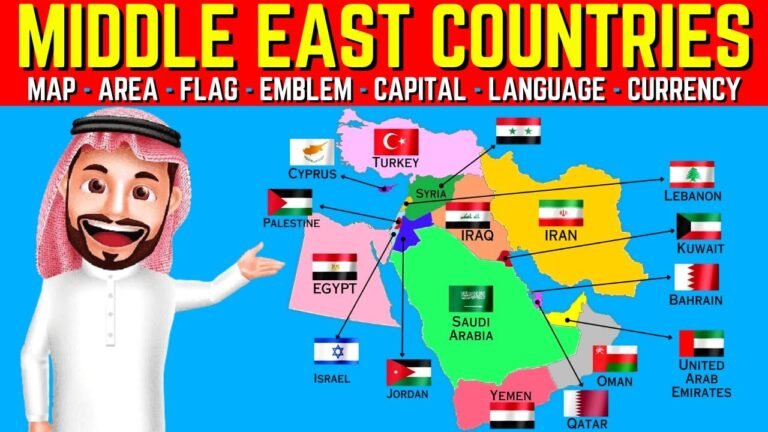Understanding Gentiles: Their Role and Significance in History
In the context of ancient history and religious texts, the term Gentiles refers to non-Jewish people, encapsulating a diverse array of cultures and beliefs. Understanding who the Gentiles were provides vital insight into the dynamics of intercultural relationships during biblical times and the evolution of religious thought. This exploration reveals not only the distinctions between Jews and Gentiles but also highlights their interactions, conflicts, and the shared human experience that transcended cultural boundaries. Delving into the identity of the Gentiles allows us to appreciate the rich tapestry of ancient societies and the enduring impact of these interactions on contemporary understanding of faith and community.
Who does the Bible refer to as the Gentiles?
In biblical terms, the word “Gentiles” refers to nations or peoples outside of the Jewish community. It encompasses all individuals who are not of Jewish descent, highlighting the diversity of cultures and beliefs present in the ancient world. This designation serves to distinguish between the Jewish people, who followed the covenantal laws of God, and others who were outside of that specific lineage.
Moreover, the concept of Gentiles extends beyond ethnicity to include those who do not adhere to the belief in God as understood in the Jewish tradition. This broader application emphasizes the idea that faith and heritage intersect in the biblical narrative, reflecting a rich tapestry of human experience and spiritual exploration. Thus, Gentiles represent both a cultural and religious distinction within the biblical framework.
Who were the Gentiles during the early days of Christianity?
In early Christianity, Gentiles were non-Jewish individuals who began to embrace the teachings of Jesus and the new faith. As the movement grew, a significant number of these converts emerged, leading to a pivotal shift within the early Christian community. The Apostle Paul played a vital role in this transformation, advocating for the inclusion of Gentiles without the requirement to adhere strictly to Jewish laws and customs.
This inclusive approach marked a gradual separation of Christianity from its Jewish roots, allowing it to evolve into a distinct religion. By emphasizing faith in Jesus as the pathway to justification, Paul helped to redefine the identity of the Christian community, which increasingly became characterized by its predominantly Gentile members. This shift not only broadened the reach of Christianity but also laid the foundation for its future growth across diverse cultures and societies.
Who are the ancestors of the Gentiles?
Gentiles, while distinct from Abraham’s biological descendants, become his spiritual heirs through their faith in Christ. This transformation allows them to be considered sons of Abraham, akin to Isaac, as they share in the promise given to him. Thus, gentiles-in-Christ, connected through the pneuma, embody a lineage that, though separate from the sarkic line of Isaac and Jacob, is intrinsically tied to the covenant of faith that unites all believers.
Exploring the Influence of Gentiles Through the Ages
Throughout history, the influence of Gentiles has shaped cultures, economies, and societies across the globe. From the early interactions of trade and diplomacy to the modern exchange of ideas and innovations, Gentiles have played a pivotal role in fostering connections among diverse communities. Their contributions have not only enriched local customs but have also facilitated the spread of knowledge and technology, bridging gaps between different civilizations. As we explore this intricate tapestry of influence, it becomes evident that the interactions between Gentiles and other groups have been essential in promoting understanding and collaboration, ultimately leading to a more interconnected world.
The Impact of Gentile Cultures on World Events
Throughout history, gentile cultures have significantly shaped global events, often acting as catalysts for change and innovation. The exchange of ideas, customs, and technologies among diverse cultures has led to transformative movements in art, science, and governance. For example, the Renaissance was a period marked by the flourishing of knowledge and creativity, largely influenced by the interaction of European civilizations with the Islamic world, which preserved and advanced classical knowledge. This cultural synergy not only enriched societies but also laid the groundwork for modern advancements.
Moreover, gentile cultures have played a pivotal role in shaping political landscapes and social structures across the globe. The spread of trade routes facilitated by various empires allowed for the mixing of cultures, which in turn influenced everything from diplomacy to warfare. The inclusion of gentile perspectives in historical narratives emphasizes the importance of diversity in understanding world events. As societies continue to evolve, the lessons drawn from these interactions remind us of the interconnectedness of humanity and the profound impact gentile cultures have had on our shared history.
Gentiles in History: Bridging Divides and Shaping Narratives
Throughout history, Gentiles have played a vital role in bridging divides and shaping cultural narratives. Often positioned at the crossroads of different traditions, they have facilitated exchanges that transcend religious boundaries, fostering dialogue and understanding among diverse communities. By engaging with various belief systems, Gentiles have not only enriched their own perspectives but have also contributed to the broader tapestry of human experience, illustrating the power of collaboration and empathy in overcoming historical divisions.
Moreover, the interactions between Gentiles and Jewish communities have often led to significant cultural and intellectual advancements. These exchanges have brought forth new ideas, artistic expressions, and innovations that reflect a shared humanity. Whether through trade, scholarship, or social interactions, Gentiles have acted as vital connectors, helping to weave a more inclusive narrative that celebrates diversity rather than division. In recognizing these contributions, we can appreciate the complex interplay of influences that have shaped our world, reminding us that history is often a collective journey rather than a solitary one.
Understanding who the Gentiles were enriches our comprehension of historical and cultural contexts, revealing the complexities of identity and belief systems throughout time. These non-Jewish individuals and communities played a pivotal role in shaping the religious landscape, influencing early Christianity and its spread. By exploring their interactions with the Jewish population and their contributions to the broader narrative, we uncover a tapestry of shared experiences that continue to resonate in today’s diverse society.






